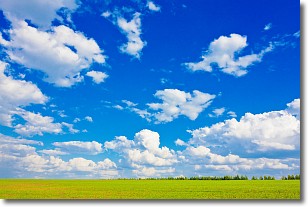Weather Alert in Minnesota
Winter Weather Advisory issued April 1 at 11:40AM CDT until April 2 at 10:00AM CDT by NWS Twin Cities/Chanhassen MN
AREAS AFFECTED: Chisago; Polk; Barron; Rusk; Chippewa
DESCRIPTION: ...SPRING STORM TO BRING PERIODS OF HEAVY SNOW TO WESTERN AND CENTRAL MINNESOTA AND NORTHWEST WISCONSIN... .A band of heavy snow will spread across across Minnesota and western Wisconsin this afternoon and evening, with heavy snow lingering into Wednesday morning across central Minnesota. In addition, late tonight into Wednesday morning, sleet and freezing rain may mix in with the snow at times over central Minnesota. A Winter Storm Warning is in effect from Douglas over to Kanabec county today through Wednesday morning. Snow is expected to last the longest in these counties, resulting in snowfall totals of 5 to 7 inches, with some locally higher amounts possible in Douglas and Todd counties. In Minnesota, there is a Winter Weather Advisory through tonight from Yellow Medicine up to Stearns and over to Chisago county. The Advisory counties across Polk, Barron, Rusk, and Chippewa counties in Wisconsin. Snowfall totals of 2 to 4 inches are expected within the Advisory, with some amounts closer to 6 inches possible in northern portions for Pope, Stearns, Benton, and Isanti counties. * WHAT...Mixed precipitation expected. Total snow accumulations between 2 and 4 inches and ice accumulations around a light glaze. Winds gusting as high as 35 mph. * WHERE...In Minnesota, Chisago County. In Wisconsin, Barron, Polk, Rusk, and Chippewa Counties. * WHEN...From 4 PM this afternoon to 10 AM CDT Wednesday. * IMPACTS...Plan on slippery road conditions. The hazardous conditions could impact the Tuesday evening and Wednesday morning commutes.
INSTRUCTION: Slow down and use caution while traveling. In Minnesota, call 5 1 1 or visit 511mn.org for road conditions. In Wisconsin, call 5 1 1 or visit 511wi.gov for road conditions.
Want more detail? Get the Complete 7 Day and Night Detailed Forecast!
Current U.S. National Radar--Current
The Current National Weather Radar is shown below with a UTC Time (subtract 5 hours from UTC to get Eastern Time).

National Weather Forecast--Current
The Current National Weather Forecast and National Weather Map are shown below.

National Weather Forecast for Tomorrow
Tomorrow National Weather Forecast and Tomorrow National Weather Map are show below.

North America Water Vapor (Moisture)
This map shows recent moisture content over North America. Bright and colored areas show high moisture (ie, clouds); brown indicates very little moisture present; black indicates no moisture.

Weather Topic: What are Contrails?
Home - Education - Cloud Types - Contrails
 Next Topic: Cumulonimbus Clouds
Next Topic: Cumulonimbus Clouds
A contrail is an artificial cloud, created by the passing of an
aircraft.
Contrails form because water vapor in the exhaust of aircraft engines is suspended
in the air under certain temperatures and humidity conditions. These contrails
are called exhaust contrails.
Another type of contrail can form due to a temporary reduction in air pressure
moving over the plane's surface, causing condensation.
These are called aerodynamic contrails.
When you can see your breath on a cold day, it is also because of condensation.
The reason contrails last longer than the condensation from your breath is
because the water in contrails freezes into ice particles.
Next Topic: Cumulonimbus Clouds
Weather Topic: What are Cumulus Clouds?
Home - Education - Cloud Types - Cumulus Clouds
 Next Topic: Drizzle
Next Topic: Drizzle
Cumulus clouds are fluffy and textured with rounded tops, and
may have flat bottoms. The border of a cumulus cloud
is clearly defined, and can have the appearance of cotton or cauliflower.
Cumulus clouds form at low altitudes (rarely above 2 km) but can grow very tall,
becoming cumulus congestus and possibly the even taller cumulonimbus clouds.
When cumulus clouds become taller, they have a greater chance of producing precipitation.
Next Topic: Drizzle
Current conditions powered by WeatherAPI.com




